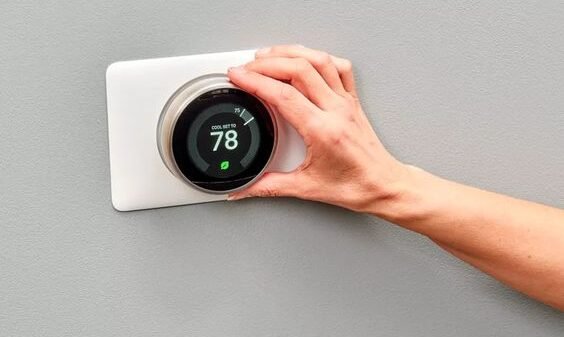In 2017, Forbes reported that half of all small businesses experience cyber-attacks. A separate study also predicts that internet-connected devices will increase to 75 billion in 2025.
In that same year, while the world will store 200 zettabytes of data, cybercrime is projected to cost the world $10.5 Trillion!
Small scale organizations often have a moderate amount of customer data stored without much security so that they aren’t really difficult to access. Hackers can leverage this to siphon sensitive information, resulting in high theft of resources.
Hence, getting your cybersecurity right is very critical to the success of your online business.
What is Cybersecurity?
Cybersecurity is a system created to defend servers, networks, computers, and data of an individual or organization from damage, malicious attacks, and unauthorized access.
The world has continued to experience a rise in cyber-attacks, and now every business owner needs to take cybersecurity very seriously.
However, many small businesses remain vulnerable due to fewer resources available to them — tight margins, low funds, and several specially trained staff to rescue a situation of cyber attack. And when it’s time to get back up from the effect of a hack, they are likely left with very few options.
But then, there are still some things you can do to make it difficult for cyber attackers to overrun your business.
Use Corporate Virtual Private Network (VPN)
A Corporate VPN helps you establish secure and encrypted data while on the internet. In this case you can use scoutdns that protects your identity, hides your IP address, and also boosts your safety while using public WiFi hotspots.
Government institutions and private corporations of various sizes use VPNs to heighten remote connections online for protection against data theft. In addition, VPNs help surfers access the web anonymously, keeping their original locations undisclosed.
Run Supported Operating Systems
Operating system developers cannot often support all versions because of the accumulated high cost of operation and support. They only support a few of the last major versions. Hence, users need to upgrade their systems often to align with supported versions.
Unsupported operating systems are pathways for cyber attackers and hackers to wreak havoc on your business. Operating systems that are no longer supported would be deprived of security fixes, bug fixes, or technical support.
Look Into The Security Practices Around Off-boarding Employees
Always ensure to audit the off-boarding process of your employees and delete their links and accounts once they are no longer part of the team. Many former employees still have access to important company information, which threatens the company’s cybersecurity.
Look at major shared logins and create a process that will ease the security practices around off-boarding employees. Leverage password managers and manage access to those passwords.
You may also want to consider limiting employees’ access to company data to cut down on the chances of any human error coming to play. Employees should only be given access to the specific information and data their jobs demand per time.
Adhere To Safe Password Best Practices
An estimated 63% of data breaches occur due to weak, stolen, or lost passwords. Aside from files, apps, and documents being duly secured with strong passwords, all employee devices that have access to the organization network must also have strong password protection.
Passwords that would be required should have uppercase and lowercase letters, symbols, and numbers. And should be changed periodically — 60 to 90 days advisably.
Link Up With A Managed IT Services Company
Hackers are becoming increasingly sophisticated, and they choose their targets at every opportunity. Small businesses cannot avail themselves of the same cybersecurity resources as huge organizations.
Managed IT Services can provide your company with equal resources as big companies — leveling the playing field regarding cybersecurity. They have the staff, experience, and knowledge to handle major cyber-attacks that may be targeted at your business.
Set up Web & Email Filters
Consider web and email filters to prevent spam from jamming up in employee inboxes and keep hackers away. Check up “blacklist” services to prevent users from accessing risky sites that can serve as threats to your company data.
Sensitize your employees about sites that can pose cybersecurity threats and encourage them against visiting those platforms. Some of these sites would only take an employee to visit them, to cause problems to your company system.
Ensure All Wireless Access Points And Networks Are Secure
Secure wireless networking and access points. Consider these routers best practices;
- Allow your router to use WiFi-protected Access 2(WPA-2) with the Advanced Encryption Standard (AES) for encryption.
- Prevent the wireless access point from broadcasting its Service Set Identifier (SSID).
- Desist from using Wired-Equipment Privacy (WEP).
- Change all admin passwords on new computer systems and other devices.
More so, if you give your visitors or customers access to wireless internet, ensure it is not the same as your business network.
Consider Cyber Security Insurance
If a cyber-attack occurs, the cost can be devastating to a growing business. It can go beyond repairing databases, replacing computers, or boosting security measures. When you have cyber-liability insurance coverage, your business can be helped with the cost of recovering from such an attack. However, ensure to understand what exactly the security insurance is covered for.
Backup Your Company Data
Backing up your company information and website will help you to reduce the effects of any potential cyber occurrence. Back up your most vital company data often. There are lots of cheap options for getting your backup system done.
And you may also want to consider multiple backup methods to increase the safety of your most important files and data.
Conclusion
Small business owners can’t just assume that they can’t be vulnerable to cybercrimes. It is always better to put structures in place to secure your business and get every cybersecurity right — starting from your company VPN. A single attack can ground everything you’ve worked for by not doing so.





























































